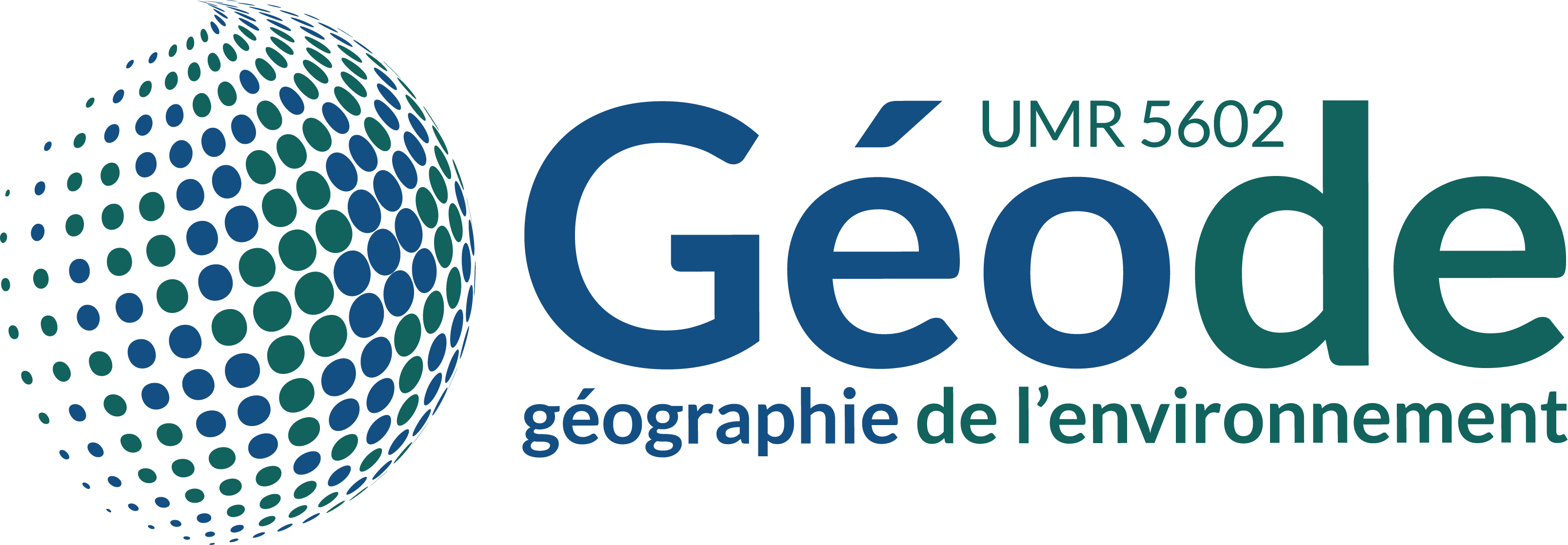-
Partager cette page

Emilie LERIGOLEUR
CNRS research engineer in geographical information sciences in BAP D (D2B42)Contact details
- Address
- Maison de la Recherche de l'Université Jean Jaurès 5, Allées A. Machado - 31058 TOULOUSE Cedex 1
- Phone
- 05 61 50 43 12
- emilie.lerigoleur@univ-tlse2.fr
- Personal Website
- https://cv.hal.science/emilie-lerigoleur
Body
Research topics
The tasks are to supervise research activities in the laboratory's geomatics-related projects, lead the open science approach and assist researchers in the personal data protection (GDPR) approach, at 6 interconnected levels:
1) within the GEODE lab: leading the ‘Open Science and GDPR’ unit and participating in various research projects. Training correspondent since 2021.
2) at the level of the DRIIHM LabEX (InterDisciplinary Research Facility on Human-Environment Interactions), which includes 14 Human-Milieu Observatories (OHM) of the CNRS Ecology & Environment: management and development of the ANR SO-DRIIHM project (Oct. 2020 - March 2024) and leadership of the data-driihm group of OHM support engineers. In charge of several tools, including the photo.driihm photo library and the Open Science section of the website.
3) OHM Pyrénées Haut Vicdessos & Vallée des Gaves: support engineer since 2011 and co-director since 2024. In charge of several tools: OHM website, OHM HAL collection, web GIS and metadata catalogue.
4) SIST multi-institutional trade network of observation data management engineers: on the steering committee since 2019 and co-leader and trainer of 2 national training initiatives on QGIS software.
5) "Research Data" College of the Open Science Committee under the aegis of the Ministry of Education and Research: active member since 2022 (see https://www.ouvrirlascience.fr/college-donnees-de-la-recherche/).
6) Coop Données de la recherche de l'université Toulouse 2 : active member since 2024 in 2 working groups ‘Open and Shared WG’ and ‘Training WG’.
At these different levels, the aim is to promote the open science approach within communities. This involves:
- to study and understand the obstacles and levers in relation to the necessary changes in practices for greater openness and re-use of data;
- to interact with the governing bodies for the implementation of shared digital tools and the definition of a data policy (e.g. within CNRS Ecologie & Environnement, see https://www.inee.cnrs. en/politiquedes-donnees-des-dispositifs-et-infrastructures-de-linee)
- support scientists in drawing up a Data Management Plan for research projects and propose methods for managing data and documenting associated metadata;
- support scientists in the process of declaring personal data processing (GDPR) in close collaboration with the CNRS DPD unit;
- supporting scientists in the FAIRification of data so that it is as easy as possible to find, access, interoperate and reuse (FAIR principles Wilkinson et al, 2016);
- proposing guides, other media and publications related to open science practices, in particular within the framework of the Open Science Committee.
